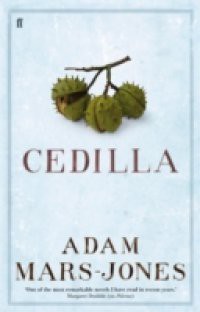Cedilla continues the history of John Cromer begun by Pilcrow, described by the London Review of Books as "peculiar, original, utterly idiosyncratic" and by the Sunday Times as "truly exhilarating". These huge and sparkling books are particularly surprising coming from a writer of previously (let's be tactful) modest productivity, who had seemed stubbornly attached to small forms. Now the alleged miniaturist has rumbled into the literary traffic in his monster truck, and seems determined to overtake Proust's cork-lined limousine while it's stopped at the lights.
John Cromer is the weakest hero in literature -- unless he's one of the strongest. In Cedilla he launches himself into the wider world of mainstream education, and comes upon deeper joys, subtler setbacks. The tone and texture of the two books is similar, but their emotional worlds are very different. The slow unfolding of themes is perhaps closer to Indian classical music than the Western tradition -- raga/saga, anyone?
This isn't an epic novel as such things are normally understood, to be sure. It contains no physical battles and the bare minimum of travel, yet surely it qualifies. None of the reviews of Pilcrow explicitly compared it to a coral reef made of a billion tiny Crunchie bars, but that was the drift of opinion. Page by page, Cedilla too provides unfailing pleasure. It's the book you can read between meals without ruining your appetite.

